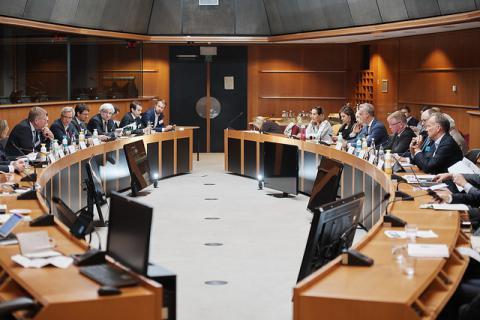Action, leadership, balance: shaping an EU industrial strategy that delivers for citizens
27 September 2019

Technology transformation, climate change, growing competition from the US and China… little wonder industrial strategy is back at the top of the EU agenda. How can policymakers help Europe’s industries retain their leading edge and drive innovation to address society’s biggest challenges? This was the question fuelling the discussions at the event ‘Enabling European industry’s global leadership’, co-organised by Orgalim and the European Forum for Manufacturing (EFM) on 25 September.
Hosted by MEP Ville Niinistö, the evening brought together parliamentarians, institutional stakeholders and high-level technology industry representatives for a roundtable on the Internal Market and European industrial strategy, followed by a dinner-debate on the external dimension of the EU’s competitiveness, from leading the climate transition to promoting rules-based trade. A great deal of ground to cover – with a number of signposts emerging from the discussions to point a way forward.
Enabling European leadership
Yet despite a tough road ahead, there was clear consensus that European industry has what it takes to become a global leader. “Europe really has the potential to turn these challenges into opportunities,” underlined Rada Rodriguez, Orgalim Deputy President and Member of the Management Board at Schneider Electric. “Our technology industries are ready to lead the urgent energy transition and digital transition that will be crucial for Europe’s future.” For Orgalim Director General Malte Lohan, the nexus of the climate agenda and tech agenda is the “sweet spot” for the EU – where it can simultaneously grow its global innovation leadership, while securing its status as a geopolitical agenda-setter.
For all the photos from the event, be sure to visit our Flickr gallery - and follow us on Twitter and LinkedIn for the latest updates on all our events.

LATEST NEWS
How can we create a dynamic, competitive European high-tech manufacturing base?
Orgalim's key recommendations offer policymake...
